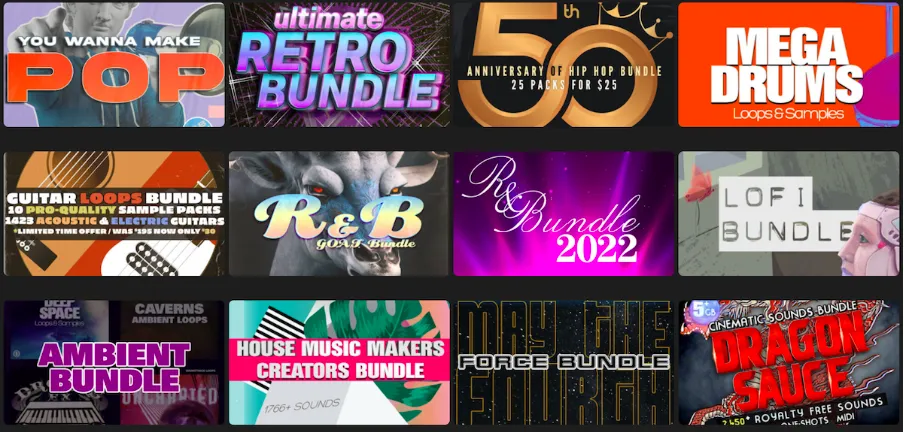Soundtrack Loops Expands From General Use to AI Licensing — With a Controlled Compositional Catalog for Ethical AI Training

Soundtrack Loops’ diverse portfolio of assets provides the foundation to enhance AI’s capabilities — with a focus on creativity with ethical AI.
On the forefront of recent discussions surrounding fair training practices for AI companies, Soundtrack Loops — with its diverse portfolio of assets — aims to ‘kickstart a shift into more widespread ethical AI training practices.’ Moreover, the company’s founders believe their catalog ‘presents an enormous opportunity for AI generation of incidental music.’
As music IP owners continue to clash with AI behemoths over what constitutes fair use, Soundtrack Loops’ latest expansion — specifically with its OneStop Audio Library for AI training — aims to remove copyright conflict from the picture entirely. The company believes that in the face of rampant litigation and raging copyright wars, its latest release is simply the right path for both developers and rights holders.
According to cofounders Matthew Yost and Jason Donnelly (aka DJ Puzzle), Soundtrack Loops’ expansion will generate new creative possibilities for AI. Yost explains, “AI imitates and mimics, and is incapable of evolving new genres and synths. That’s where the Soundtrack Loops OneStop Audio Library steps in.”
“For AI developers, seeking ways to source content ethically brings a lot more benefits to the table than plundering through endless amounts of copyrighted materials,” says Yost. Just recently, Soundtrack Loops partnered with DMN to expand its ethical AI footprint.
Speaking about the benefits of tapping into Soundtrack Loops’ AI library, Donnelly believes that a focus on ethics as a standard for AI model development and training will ensure AI output doesn’t cause copyright disputes.
“The thousands and thousands of samples and loops in Soundtrack Loops packs are unique because they are created by us, or purchased by us from others as a work for hire. This is very common practice. We hire producers to create original works, then we buy them outright,” Donnelly explains.
This transparency of training material is what the A2IM, RIAA, and related music organizations are pushing for: a system that mandates remuneration to the sources of AI training material.
Donnelly further clarified that Soundtrack Loops offers different tiers for broader licensing options beyond AI, but a ‘core focus is now on ethical AI licensing.’
Yost believes ethical licensing considerations while training sophisticated AI models ‘will lend credibility to the AI industry.’ Rather than risk litigation and shutdowns, AI developers might be better off using these platforms.
Only time will tell how copyright conflicts in the courtroom will ultimately shake out, but Yost thinks there’s a monumental benefit in store for AI companies that lead the way by adopting ethical AI training practices. “These developers could potentially score a larger chunk of the market.”
“Using protected and controlled compositions for training could have an exponentially positive impact on AI companies’ brand and image — and serve as a unique competitive advantage,” he says, adding, “It also allows developers to be on track to comply when the new regulations and bodies of law emerge — ones that enforce transparency of data and remuneration of artists.”
And Donnelly says the company ‘has the assets to pull this off.’ The holistically controlled catalog contains over 80,000 assets accumulated over 20 years, with a multitude of loops and samples, presets, and MIDI files — spanning almost every genre and category of music.
“We practically have almost all genres available and a network of producers to help fill in the gaps if needed. ” says Donnelly.
He further elaborates that licensers can analyze loops on the catalog, access raw samples, or utilize all the individual isolated notes and nuances of instruments for AI training.
AI developers can tap into Soundtrack Loops’ licensing zones for a myriad of use cases — but Yost and Donnelly believe it could be an especially powerful asset for music directors that require bulk generation of ‘incidental’ production music.
“Incidental music is one of the places where AI has a very serious chance of having a huge impact within the next two to five years, because these producers have to churn out tons of music,” explains Donnelly. “The job requires a giant pool of music, which is exactly what Soundtrack Loops offers — a comprehensive library of loops in all genres.”
Donnelly points out that an AI tool backed by Soundtrack Loops for incidental music could fill a gap in the market, be a big time saver for huge productions, and represents an ‘enormous opportunity.’
Then there’s the theoretical downstream catalog of AI-generated works that can result from this initiative, all of which is legal. Donnelly believes that the ‘right AI program’ capable of mixing, matching, and constructing unique music from these different elements, ‘could create a huge library of incidental music.’
“AI companies have to take a step back and evaluate the current ethics of their practices, and make better decisions for training. They should willingly be offering clean, ethical AI.”


